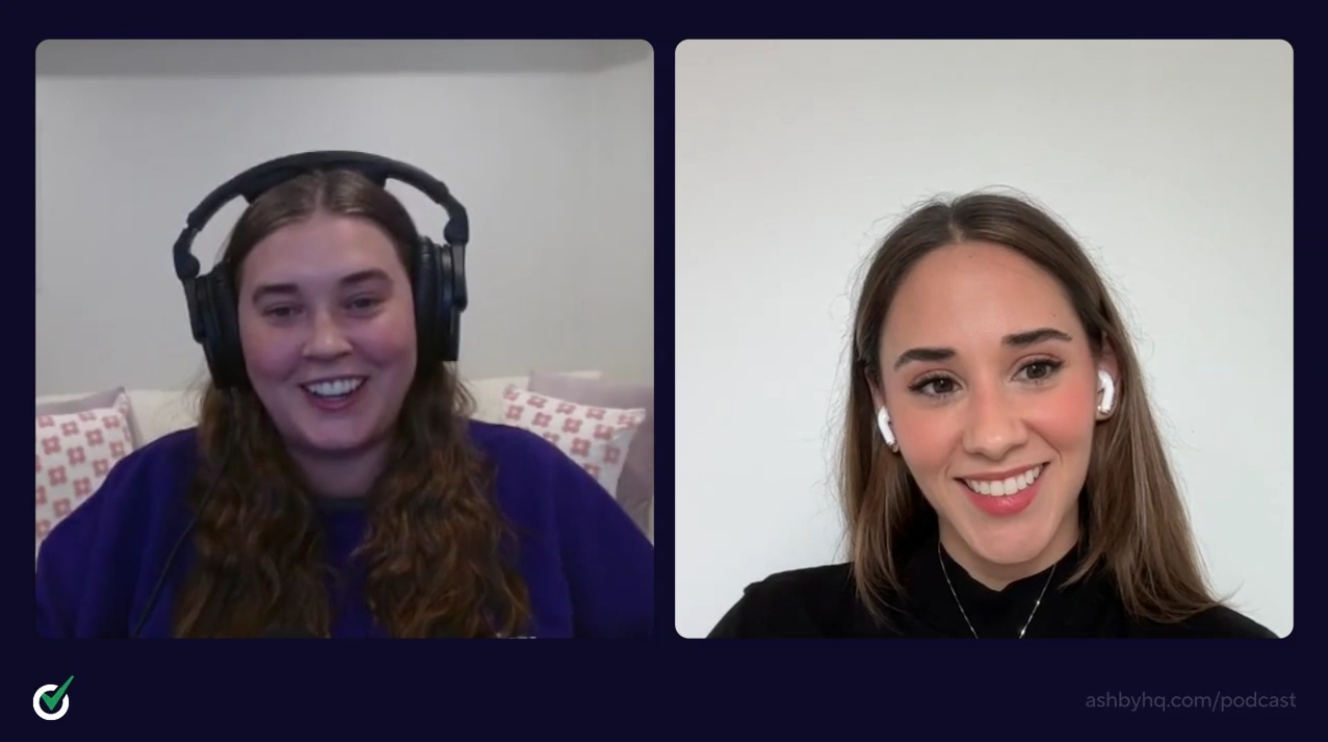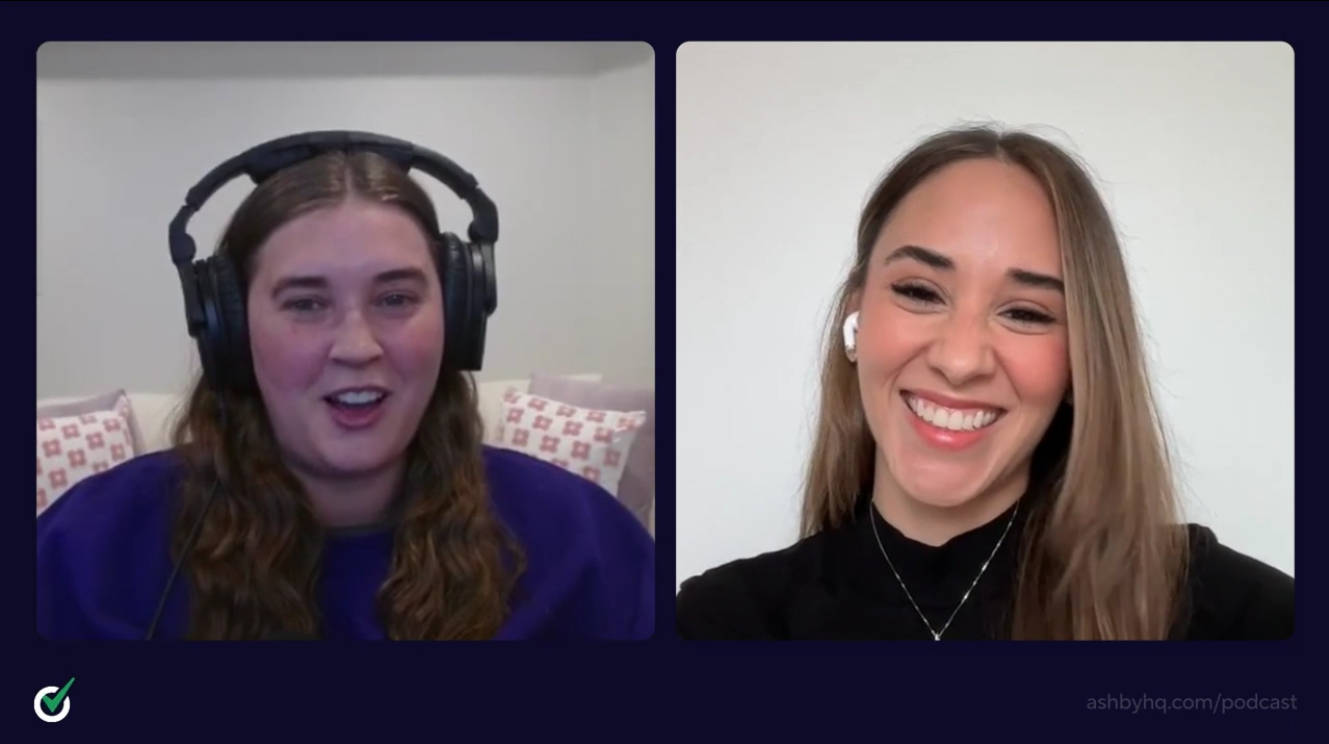Building Trust with Hiring Managers
About this Episode
Maria Fernanda is a seasoned technical recruiter with experience at Twilio and Brunel, where she has hired across LATAM, APAC, and EMEA. Known for her thoughtful, relationship-first approach, she brings clarity and structure to each step of the hiring process.
In this episode of Offer Accepted, Maria shares how she builds alignment early and coaches different types of hiring managers to avoid missteps later in the process. She walks through how recruiters can adapt their approach based on a manager’s background, earn trust through context and data, and keep the process moving without losing sight of the human side of hiring. This episode is a must-listen for recruiters who want to lead, not just follow process.
Topics
This Episode's Guest
Maria Fernanda
Sr. Technical Recruiter @ Ex-Twilio
Maria Fernanda is a seasoned technical recruiter with experience building hiring strategies globally. She has led talent efforts at Brunel, was an Senior Technical Recruiter at Twilio, and specializes in coaching hiring managers, aligning expectations early, and using structured conversations to improve outcomes.
Takeaway 1
Without alignment, everyone loses 🎯
Maria shares that evaluating candidates without alignment is like asking six people to describe a piece of art and getting six completely different answers. Without shared expectations, everyone relies on personal opinions, which can lead to confusion, slow the process down, and it becomes harder to agree on what “great” looks like.
Why It Matters:
When teams aren’t aligned, recruiters often chase a moving target in hopes of finding a unicorn candidate. But even the most qualified person can get overlooked when everyone’s definition of success is different. Maria shows how early alignment helps surface what truly matters and gives great candidates a fair shot.
Quick Tips
- Use side-by-side profiles to calibrate. Maria brings three profiles to kickoff: one almost 100% match to the criteria, one around 80 percent, and one closer to 50 percent. Comparing them together helps hiring managers articulate what matters most and reveals where expectations may be misaligned with the job description. Where the recruiter cannot find anyone that is a 100% match, she asks hiring managers to share an example of an ideal profile to start the conversation.
- Facilitate disagreement and document shared criteria. Maria doesn’t wait until round three to uncover mismatches. She asks direct questions in kickoff to surface disagreements early, then summarizes agreed-upon strengths, red flags, and evaluation signals to keep everyone aligned.
- Remember the bandwidth gap. Hiring managers are juggling a hundred competing priorities - and hiring is just one of them. For recruiters, it’s the job. Maria encourages patience, clarity, and true partnership. Bring structure, reduce friction, and meet your hiring manager where they are, not where you wish they were.
Takeaway 2
Coach to experience, not just the role 🧭
Maria outlines two common hiring manager types that can present initial challenges: newly promoted ICs and experienced managers who are new to your company. Each brings different challenges and requires a different coaching approach.
Why It Matters:
Each hiring manager brings their own frame of reference to what worked at their last company, what they’ve seen modeled, or what they’re nervous to admit they don’t know. Maria shows that tailoring your support to those experiences builds trust and leads to smoother, faster hiring.
Quick Tips
- New-to-org managers: Ask what hiring looked like at their last company. Success criteria, levels, and what worked well, or didn’t. Maria recommends that you start by listening and then share explicitly what they can expect to be the same, and what is unique to the new company. Being clear in these situations removes ambiguity and confusion.
- ICs transitioning to management: These managers may be making their first hire and are under pressure to get it right. Maria recommends explaining your role clearly and showing that you are there to guide, not just deliver resumes. This is where it helps to over-communicate and create a safe space for a lot of questions.
- Both – Clarify the tools. Maria explains that even senior managers may be unfamiliar with your exact hiring systems. Taking time to walk through things like how to review resumes, submit feedback, or access interview notes ensures there are no surprises down the line-and it prevents small gaps from turning into delays.
Takeaway 3
Influence Comes from Clarity 🧠
Recruiters are not just there to push candidates through. Maria emphasizes the importance of building trust by contextualizing each step of the process rather than simply defending it. For example, at Twilio, she helped an engineering leader understand the purpose of a bar raiser interview and why it mattered. She shared examples she’d collected from leaders and stories of past mishires that happened when this step was skipped. Once he saw the benefit, he began advocating for it himself.
Why It Matters:
Influence isn’t about seniority, it’s about clarity. When hiring managers understand the purpose behind the process, they’re more likely to trust it, stay engaged, and make better decisions.
Quick Tips
- Take time to understand their business goals. Ask what the team is trying to achieve, what the current makeup looks like, and where they see strengths or gaps. This helps you shape more useful feedback and guide hiring managers toward the hires they actually need.
- Understand the hiring manager as a human being. Maria learned to communicate differently with a detail-oriented operations leader versus a storytelling-heavy product VP. She suggests adjusting your style based on how your hiring manager thinks and works.
- Set a goal for every sync or skip it. Maria emphasizes that weekly meetings should not be status updates. Use them to revisit criteria, flag business shifts, or surface blockers. If there’s no purpose, cancel it. That shows respect for everyone’s time and reinforces your strategic role.
What Hiring Excellence Means to Maria
For Maria, Hiring Excellence starts with having the right tools to access the right data. That data allows recruiters to influence decisions and shape better outcomes.
>> Watch the Clip

Maria's Recruiting Hot Take 🔥
“Recruiting is more about alignment than actually finding talent.”
Maria believes most teams over-index on finding better candidates, when the real issue is misalignment around what they’re looking for. If you don’t have a shared definition of success, even great talent will get passed over. Alignment turns good recruiting into great hiring.

Timestamps
(00:00) Introductions
(00:35) Guest profile: Maria Fernanda
(02:16) Why strong recruiter–hiring manager relationships matter
(04:25) Aligning multiple perspectives across a hiring team
(07:39) Two types of new hiring managers and how they differ
(10:12) Coaching seasoned managers new to the company
(13:38) Using real candidate examples to clarify alignment
(17:20) Building buy-in for unfamiliar hiring processes
(22:42) Helping new managers navigate ATS tools
(29:33) Adapting communication style to influence hiring decisions
Other Episodes
Securing Talent's Voice in Headcount Strategy
In this episode of Offer Accepted, Mario Espindola, Senior Director of Talent and Operations at SignalFire, shares how talent acquisition leaders can secure a seat at the headcount planning table and use it to drive real business outcomes. Shannon and Mario discuss how to bring credibility with data, clarify ownership using RACI frameworks, and connect hiring plans to revenue and growth metrics. Whether you’re leading your first planning cycle or looking to step into a more strategic role, this episode offers tactical advice to shift from execution to influence.
Upskilling with AI in TA
In this episode of Offer Accepted, Jan Tegze, Director of Talent Acquisition and a multi-time published author, shares how AI is reshaping the recruiting landscape. He explains how AI tools enable efficiency by automating repetitive tasks while highlighting the critical role of human elements like trust and empathy. Jan shares why upskilling in AI is now a core competency for recruiters and how strategic experimentation with these tools can lead to long-term success.

Join the Hiring Excellence movement
New episodes every month - subscribe here so you never miss out.
